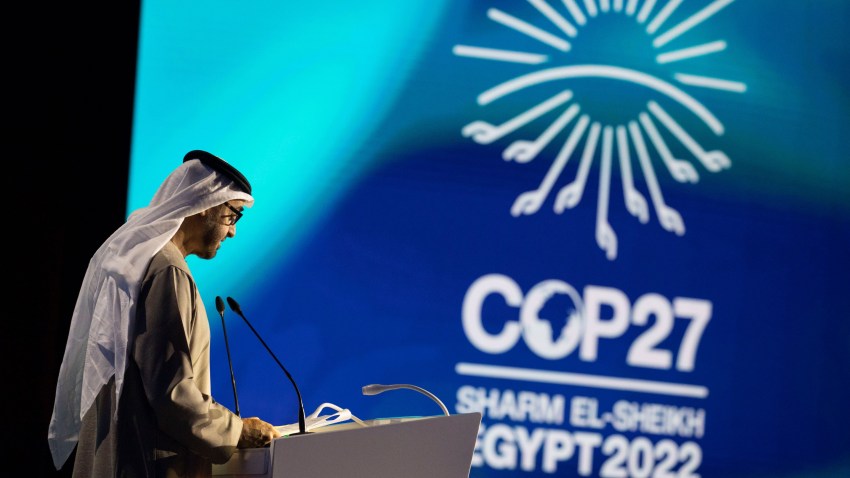The United Nations COP27 Climate Change Conference in Sharm el-Sheikh, Egypt, closed Sunday with a historic agreement to create a “loss and damage” fund to compensate the world’s most vulnerable countries for climate disasters caused by carbon emissions that historically have come from rich, industrialized countries, primarily in the Global North. Egypt, this year’s host, hailed the agreement as well as others brokered at COP27 as a success. But there continues to be a gap between the climate-change commitments most countries in the Middle East and North Africa have formally expressed and their actual behavior, and these contradictions were on full display during the COP27 conference.
While the region’s countries are expected to benefit from the “loss and damage” fund once it becomes operational, most have yet to commit to implementing the proactive environmental policies they have signed up to in international protocols. And at COP27, they demonstrated a similar lack of ambition. For instance, the only MENA countries among the signatories of the Accelerating to Zero Coalition—a nonbinding pledge to phase out the use of diesel and gas vehicles by 2040—were Israel, Morocco and Turkey, despite the region being known for its dependence on vehicles powered by fossil fuels. Notably, neither Egypt, this year’s COP27 host, nor the UAE, which will host COP28 next year, joined the A2Z Coalition, although the Egyptian motor company Abou Ghaly Motors and Emirates Global from the United Arab Emirates were among the companies that did.
Egypt presented what on the face of it appeared to be an ambitious proposal calling on developed countries to improve on their existing emissions targets of reaching net-zero by 2050, and instead commit to “net negative” carbon emissions by 2030. But the proposal was widely panned by most delegates at the conference as being unreasonable, unrealistic and disruptive, and unsurprisingly went nowhere.

